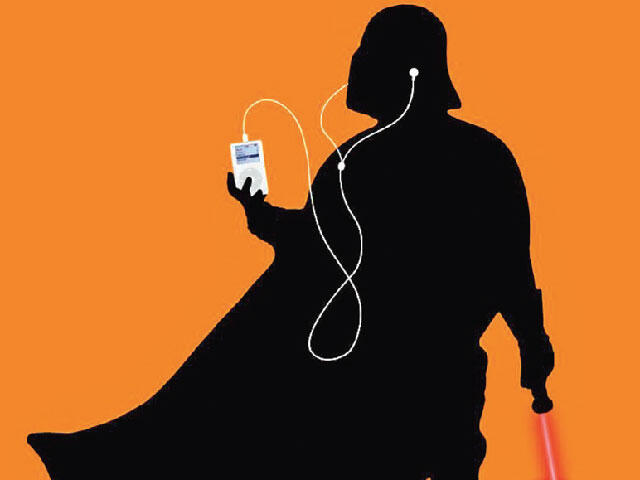To connoisseurs of music, technology is more like a bugbear. Vinyl seems to be the only invention that has gladdened the hearts of fans across generations. Cassette tapes sound too metallic.
Blue Ray is too bland. The iPod makes all notes blunt… ask any aficionado and complaints will roll out faster than frantic drumbeats. However, technology has little time to listen to the blahs of irate fans.
The average consumer of music is the target audience for technology developers. Though the fans say the masses do not have the ear for good music, they only get a deaf ear. The techno-logic is: if you want to hear ‘good’ music, assemble your personal technology.
New research has rekindled the ‘music vs technology’ debate. And perhaps much more. Streaming, according to University of Ohio researcher Hubert Léveillé Gauvin, has virtually killed the instrumental intro. The findings cannot be confined to a narrow ‘connoisseur vs hoi polloi’ debate. They add to a growing body of evidence of how technology reshapes human thinking — in this particular case, shorter attention spans. The study finds listeners’ short attention spans inspire intros that are four times shorter.
The research published in the journal Musicae Scientia, noted that “intros that averaged more than 20 seconds in the mid-80s are now only about 5 seconds long”. Léveillé Gauvin, while analysing top 10 Billboard songs between 1986 and 2015, noted a pronounced increase in the tempo. So pack in as much as possible within a short timeframe, or risk losing the listener.
Radio stations, a bellwether for musical tastes, across the world had already sensed and adapted to the shortening of the attention span. In 2014, one such station, 90.3 Amp (CKMP) in Calgary, Canada, changed to a format called QuickHitz. It promised the listeners ‘twice the music’ by reducing all of its song times in half, to an average of two minutes.
The rise of ‘skippable’ music streaming services such as Spotify and Pandora have further shortened the listening time for a piece to hold on to a fickle audience.
“It’s survival of the fittest: Songs that manage to grab and sustain listeners’ attention get played and others get skipped. There’s always another song,” says Léveillé Gauvin in the report. “If people can skip so easily and at no cost, you have to do something to grab their attention.”
Instrumental intros are not the only victim of a shortened attention span. Already there is evidence that it has affected children and many are not reading books for pleasure. In the case of music, the Ohio study found that singers such as Justine Beiber and Katy Perry hardly waste any time before mentioning the song title in the lyrics. Also, song names “today are shorter than they used to be — often just a single word”. According to Léveillé Gauvin, today’s pop industry is operating under an ‘attention economy’.
What is causing this phenomenon? A 2012 research that analysed the musiclistening behaviour of radio listeners had identified one such trigger: the fast forward option. The study noted that attention spans of people have changed when it comes to music. They often listen to snatches of songs or fast-forward through tunes on their iPods. Though no such study on the Walkman is available, one suspects the effect of music gadgets on attention spans started much earlier.
In addition to iPods and streaming, smartphones are most likely playing games with our attention spans. In a 2015 study, Canadian researchers surveyed 2,000 participants and studied the brain activity of 112 others using electroencephalograms (EEGs). The research claimed that our attention span has declined from 12 seconds in 2000 to 8 seconds a little more than a decade later.
Most of us now live a life on multiple screens. But our brain cannot process multiple sounds simultaneously.
So, we cannot take pleasure in listening to a pop song and a bhajan as two distinct tunes at the same time. Technology allows us to skip one tune and come back in the next instance. This affects our ability to concentrate on a thing or idea. Will technology kill music? Not really. Our minds are adaptive systems.
As technology develops and alters the human experience, our minds can quickly reorganise to suit the milieu. A shortened attention span may kill the instrumental intro, or alter the book-reading habit for children.
But it may be well suited for online navigating and the music there. However, if you find streaming unsuitable for your tastes, take out that Deep Purple LP and play ‘Lazy’. I can assure you that you will soon have alot of company.
Source: http://bit.ly/2olJfnX











